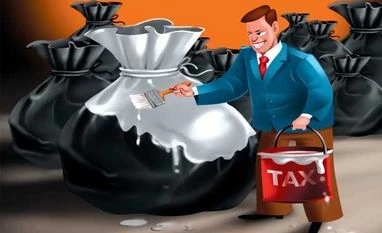The Income Declaration Scheme (IDS), which gives holders of undeclared wealth a chance to come clean by paying tax, surcharge and penalty of 45% and escape punishment, had earlier provided two month's time after the close of declaration window on September 30 this year for payment of dues.
Now, the government has allowed payment of dues in three instalments by September 30, 2017.
More From This Section
The first instalment of 25% of the total tax, surcharge and penalty due will have to be paid by November 30, 2016, followed by a second tranche of an equivalent amount by March 31, 2017. The remaining 50% will have to be paid by September 30, 2017, a finance ministry statement said.
In a separate statement, the government set to rest the theory of 31% being the effective tax rate under IDS.
Addressing queries received from stakeholders on whether the payment under IDS can be made out of undisclosed income, without including it in the income declared -- thereby whittling down the effective tax rate to 31%-- it has clarified that there is no intent to "modify or alter the rate of tax, surcharge and penalty payable under the Scheme".
The clarification in the form of frequently asked questions (FAQs) stated that "Sections 184 & 185 of the Finance Act, 2016 unambiguously provide for payment of tax, surcharge and penalty at the rate of 45% of undisclosed income".
It offered an example: If a person declares Rs 100 lakh as undisclosed income, being the fair market value of undisclosed immovable property as on June 1, 2016 and pays tax, surcharge and penalty of Rs 45 lakh (30 lakh + 7.5 lakh + 7.5 lakh) on it out of his other undisclosed income, he won't get any immunity.
"In this case the declarant will not get any immunity under the Scheme in respect of undisclosed income of 45 lakh utilized for payment of tax, surcharge and penalty but not included in the declaration filed under the Scheme," according to the clarification.
To get immunity under the Scheme in respect of the entire undisclosed income of Rs 145 lakh (Rs 100 lakh being immovable property and Rs 45 lakh being the payment made from undisclosed income), a person must pay tax, surcharge and penalty under the Scheme amounting to Rs 65.25 lakh i.e, 45% of Rs 145 lakh.
The tax department said a revision in the declaration before the close of the four-month window on September 30 will be allowed subject to the condition that the reported amount is not reduced.
On the provision under which the information declared will not be shared within the income-tax department for investigation, the FAQ said the Government on July 6 through a notification directed that "no public servant shall produce before any person or authority any such document or record or any information or computerized data or part thereof as comes into his possession during the discharge of official duties in respect of a valid declaration made under the Scheme".
Also, immunity to the directors or the partners, as the case may be, shall be available in respect of the undisclosed income declared under the Scheme by the company or partnership firm, it said.
On the issue of the declarants being selected for scrutiny under the CASS after IDS declarations in respect of cash and investment resulting in increase in capital in the Balance Sheet in extra ordinary manner, it said such cases "shall not be selected for scrutiny under the CASS only on the ground that there is increase in capital in the balance sheet as a result of the declaration made under the Scheme".
In the FAQs, the Income Tax Department said it was expected that the declarations made under the Scheme are filed correctly but a revision will be allowed within before September 30 subject to certain conditions.
"A revised declaration can be filed on or before the date of closure of the Scheme provided the undisclosed income in the revised declaration is not less than the undisclosed income declared in the declaration already filed," it said.
In a case where the declarant gets the benami asset transferred in his name without payment of any monetary consideration to the benamidar, no capital gains would be chargeable.
"In this case the consideration for acquisition of benami property has already been paid by the beneficial owner and the fair market value of the property has been declared by the beneficial owner under the Scheme.
"Since, the transfer of property from benamidar to beneficial owner is only to regularize and there will be no involvement of monetary consideration for transfer of immovable property by the benamidar in the name of the declarant, the question of capital gains in the hands of benamidar and deduction of tax at source thereon shall not arise," the FAQs said.
)